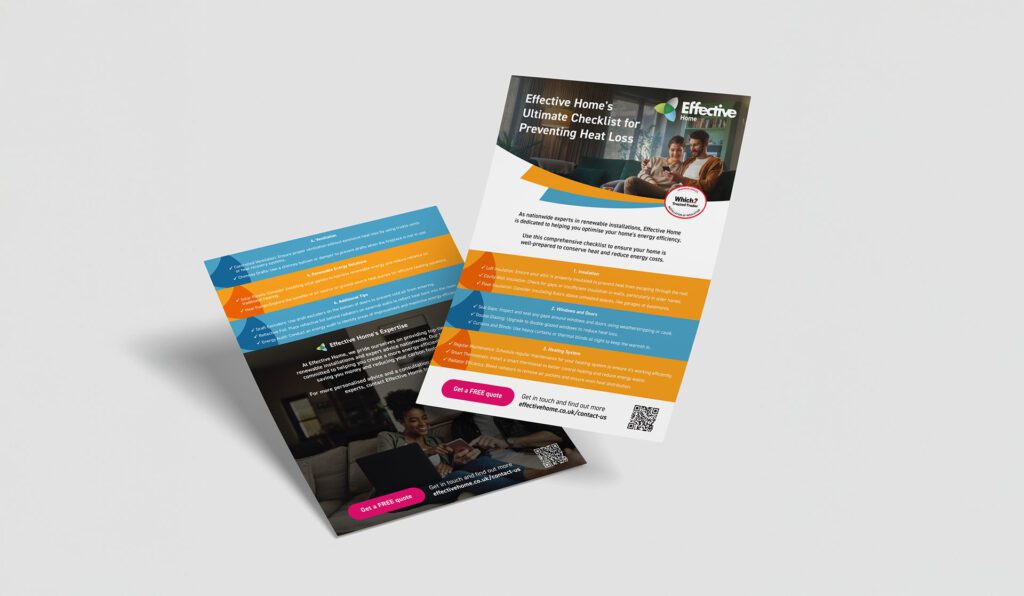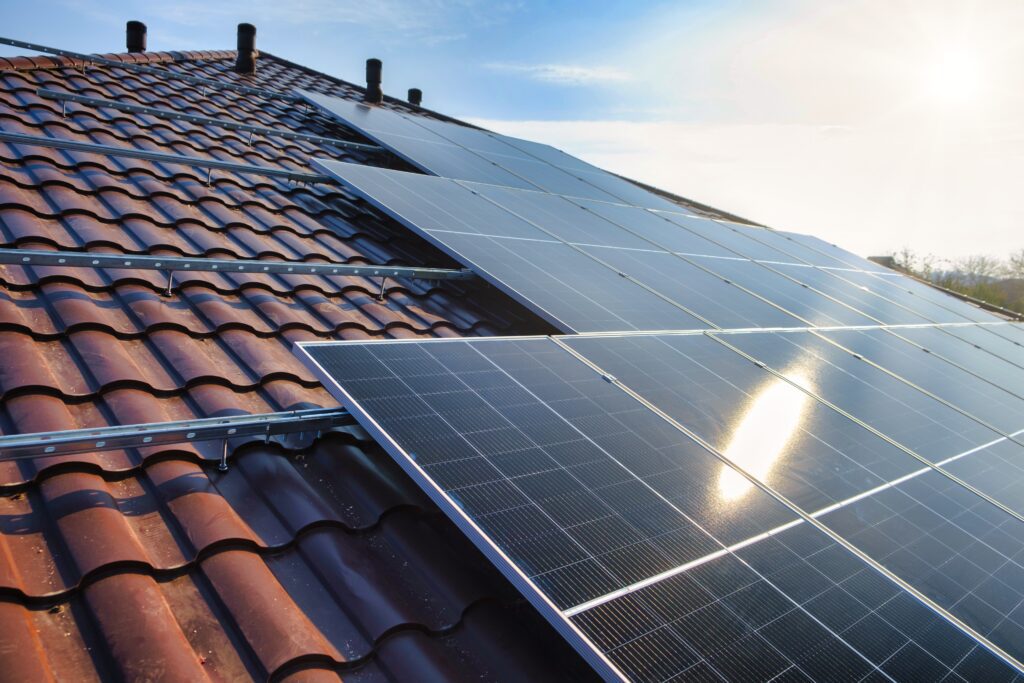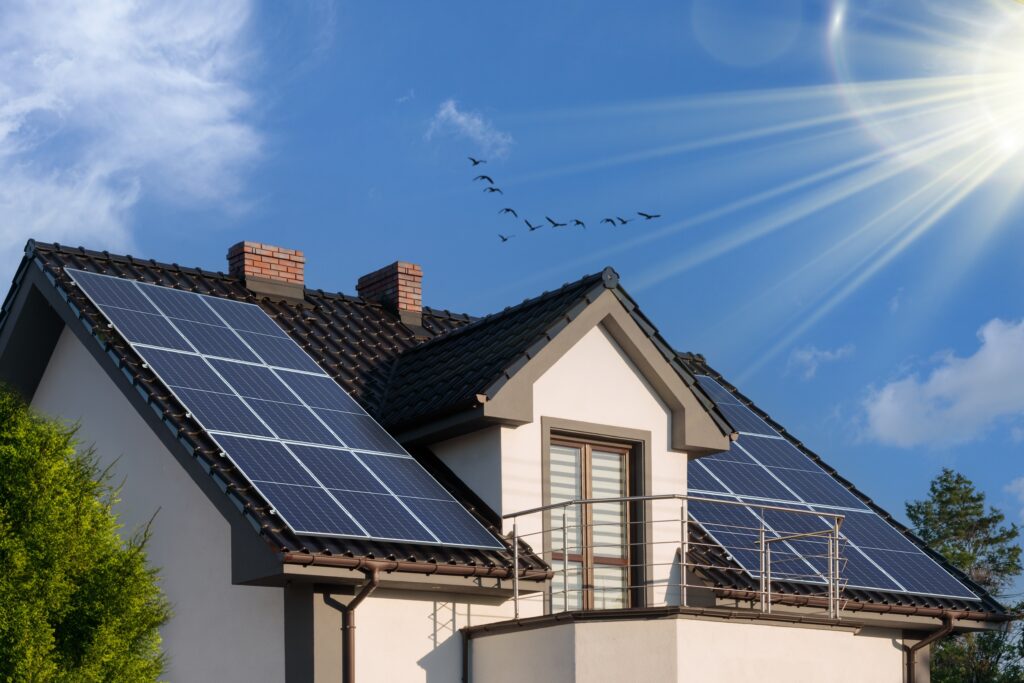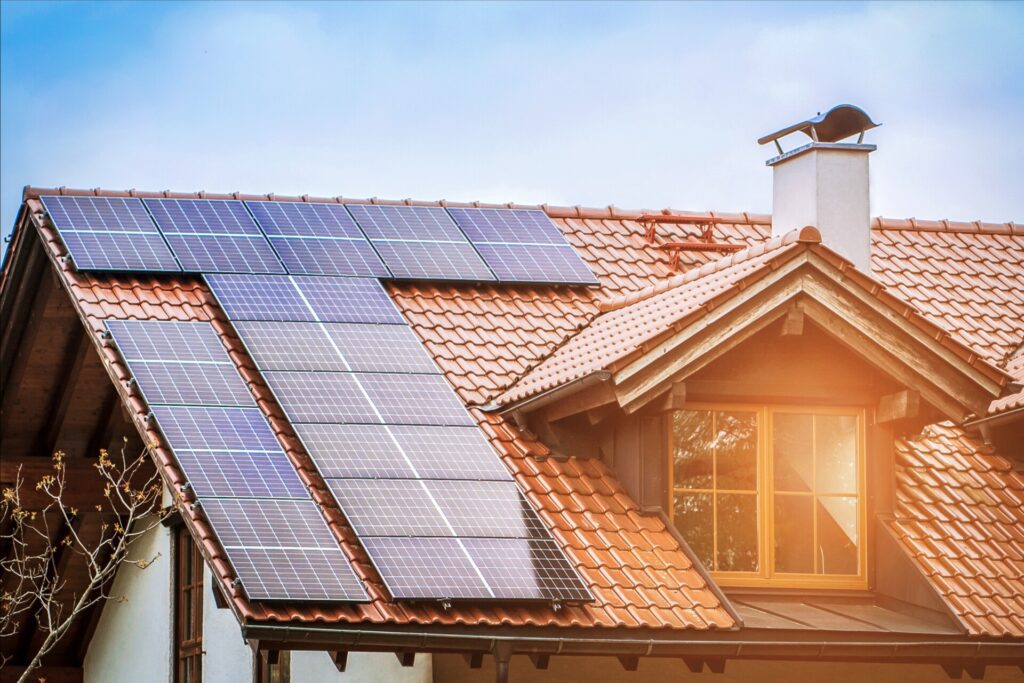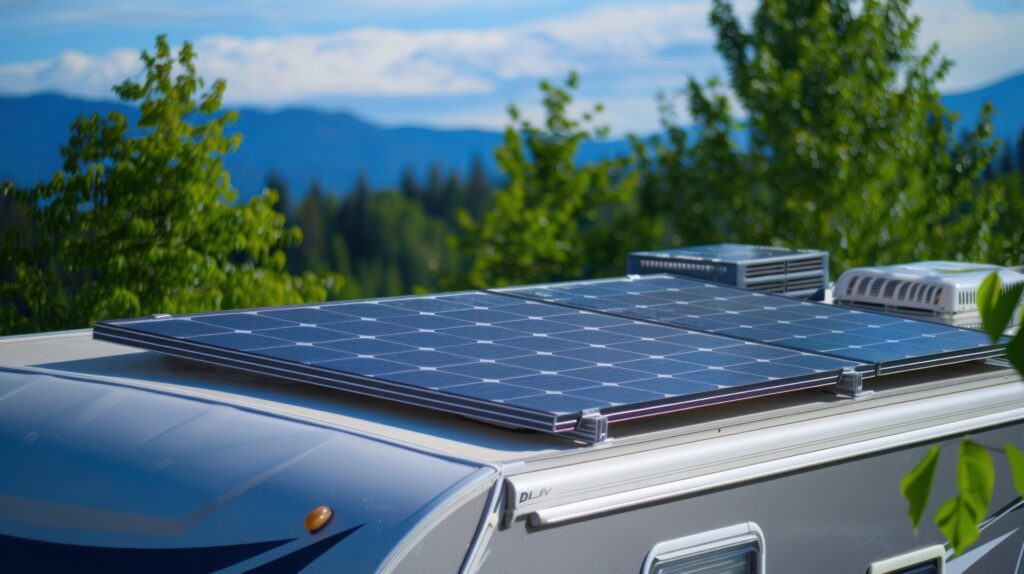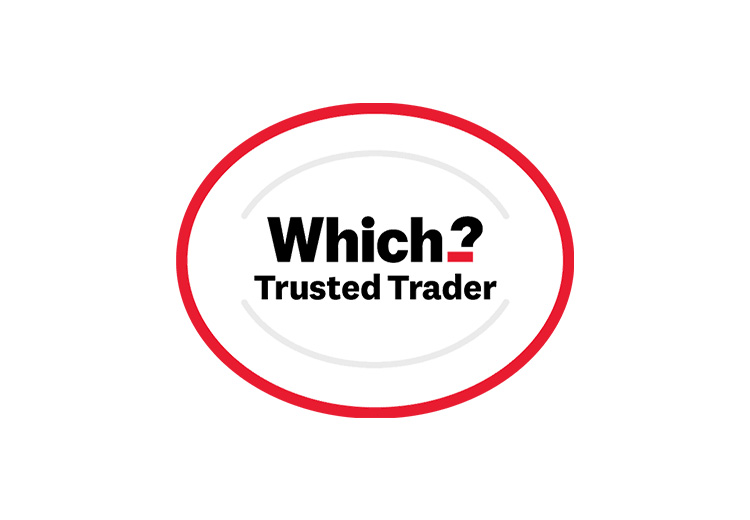Maximise Your Solar Savings With Solar Panel Batteries
- Further reduced carbon footprint
- Increased energy independence
- Earnings by selling excess energy to the National Grid
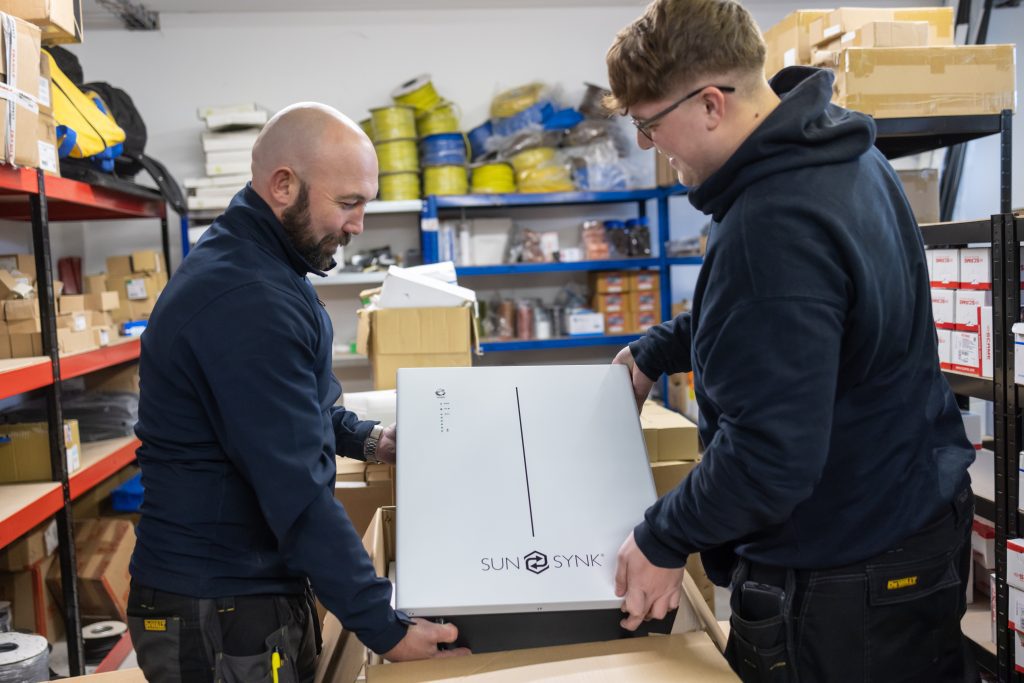
What Battery Packages Can I Get?
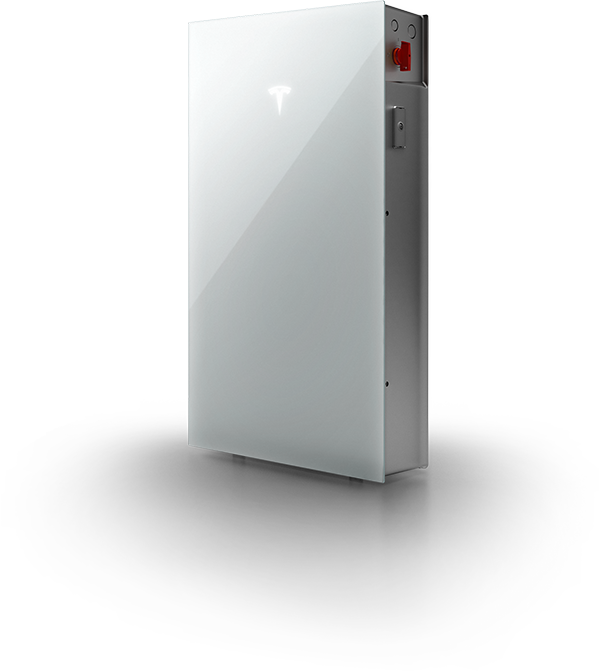
Tesla Powerwall 3
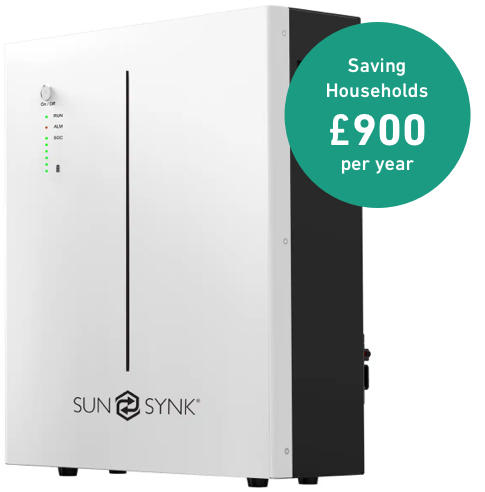

SunSynk Battery
- Store excess energy
- Enhanced Grid Stability & Resilience
- Flexible Configuration
- Advanced Monitoring
Solar battery packages available from Effective Home
You can opt for a solar panel plus battery package or even add a solar battery to an existing solar panel system. If you are not sure which solar products are suitable for your home, get in contact with our team and we’ll work out how much energy your household needs and advise you on the best battery storage systems available to you.
Benefits of installing a battery for your solar panels
- Keep powering your home with solar energy storage, even when the sun is down
- Achieve up to 23% ROI vs 3.1% from your regular savings
- Average annual savings of over £900 (when using solar panels + battery)
- Fully monitored system
- Reduce your carbon footprint
- Improve your EPC
Let us reduce your energy bills the effective way
Why you need a solar battery
If your home is suitable for a solar array then it makes sense to get the maximum out of your solar panels for home by combining them with a battery system. Doing so lets you make more use of the solar power being generated by storing it for later use, or even selling excess energy capacity to the National Grid.
It is even possible in some instances, where your home is not suitable for solar panels, to have battery storage without solar panels. These types of energy storage systems work on the basis that they are charged by mains electricity at a time when demand for electricity, and therefore prices, are lower, so you ultimately pay less for the electricity you use.
Solar battery storage systems can save you up to £565 a year.
Solar with a battery
- Lets you store excess electricity generated
- Use more (up to 80%) of your solar energy so you're not reliant on the Grid
- Gives you access to your own renewable energy whenever you need it – even at night
- Opens up access to the Smart Export Guarantee (SEG) – paying you for energy you do not use
- Future-proof your home as more of what we do is powered by electricity
- Provides a backup in the event of power outages
Solar without a battery
- Only lets you use 20-40% of the solar energy you produce
- Means you will still be reliant on the Grid at times
- Means you continue to pay for energy when it's dark
- Means your energy bills rise in line with energy costs
- You have no protection against future price shocks
Why Choose Effective Energy
- 0800 123 4567
- 0800 123 4567
Trusted and accredited





Choosing your Solar PV from us means that you are protected under HIES (Home Insulation & Energy Systems Quality Assured Contractors Scheme). To become a member of HIES we have passed their strict accreditation process and will be vetted annually to ensure we meet their guidelines.
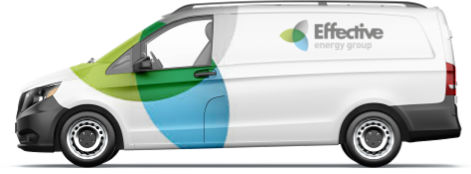
Solar Battery Storage FAQs
How much will solar battery storage cost?
Each solar battery is different, so each is priced differently. It’s difficult to say exactly how much your specific battery storage system will cost because first, we’ll need to identify your specific needs and then consider which battery storage system is best suited to those needs.
We can add compatible batteries to an existing solar PV system, or add them at the same time we install solar panels. It is also possible to increase battery capacity to help you save more money by reducing the amount of electricity you need to draw from your energy supplier.
Of course, you’ll have a budget in mind and there may need to be some compromises to ensure you get the right system for you at the right price. Our customer service team will be able to guide you through the process to ensure you receive a battery set up that is right for your needs.
How much will I save with solar battery storage?
A household that installs solar panels without battery storage will typically only be able to use around 20%-40% of the energy they generate since they are often not at home to use the electricity that is being generated throughout the day. This is where solar batteries are a game-changer since a household that installs solar panels with battery storage will be able to use up to 80% of the energy they generate and therefore save money by reducing their electricity use from the Grid.
This has a significant impact on bills, though the exact amount that would be saved with a battery will vary depending on lifestyle, the size and efficiency of the solar array, the usable capacity of the batteries installed, plus future energy prices. Talk with our team and we can give you a better idea of the best solar battery options available to you and the savings you could make.
How long do solar batteries last?
We supply a number of different solar batteries, some of which could last up to 15 years – the lifespan of solar batteries far exceeds that of standard batteries you use on gadgets at home.
Lithium-ion batteries are generally the preferred energy storage option over lead acid batteries, as they tend to last longer, require less maintenance, have greater efficiency, have better depth of discharge, and have more usable capacity.
All of our range of battery storage systems come with a 10-year warranty as standard.
What size solar panel battery storage do I need?
While average electricity consumption varies according to factors such as the weather, it is estimated that the typical UK home requires around 8kWh to 10kWh daily, though this could change if you were wanting to use your system for the charging of electric vehicles.
With solar battery capacities ranging from around 1 kW to 16 kW, you will need one (or potentially more than one battery) that is able to meet your needs throughout the year.
While you can fall back and draw electricity from the Grid when you don’t have sufficient electricity being produced by your system, especially when less energy is being generated in winter, you want a system that is going to minimise your need to do this. However, this doesn’t necessarily mean that you need the largest capacity battery. We will consider your energy demand and advise on the best solar battery storage solution for you based on your household needs.
We consider the amount of energy you use and the amount of renewable energy we expect you to generate, then advise on the solar panel battery storage option that best fits your household. We can give you a good idea of solar battery cost and the best solar batteries that are available today when you work with us.
Read more
Are solar batteries a worthwhile investment in the UK?
A solar battery system is a significant investment for households, whether you are adding one as part of a complete solar installation or if you are adding only solar batteries to an existing solar panel system.
With energy costs at alarmingly high levels, solar panels and batteries provide an opportunity for households to gain a degree of independence from the Grid and protect themselves from future price rises.
With solar PV panels combined with a smart battery system, you can generate your own electricity, use it at the time you need it, store it for later use, or even export it to the National Grid for payment. This will reduce your dependence on electricity from your supplier and have an impact on your energy bills.
Will a solar battery work with my existing PV panels?
Yes. If you already have solar PV panels on your roof, we can supply and fit a battery so you can store and sell your solar energy. Simply book your free home survey and one of our experts will advise on a solar battery and timings.
Do I need to add battery storage to my solar panel system?
You don’t have to add a smart solar battery to your solar system set-up, but having one certainly helps you get the maximum out of it. Without solar battery storage, you will only be able to use the energy your new PV panels generate for your home at the time it is generated.
When there is no solar energy to tap into, your energy supply will revert back to drawing it from the Grid. A smart solar battery stores your energy so you can use it or store it for when you need it.
Is it possible to add more than one battery to a solar PV system?
Yes, it is possible to have more than one storage battery hooked up to your solar PV system. For some people, they may want to save as much money as possible by minimising the amount of electricity they draw from the Grid, or they may want to go off-grid completely.
It is not uncommon for some households to have around 2-3 batteries for storing energy to cover the majority of their needs. Those wanting to go off-grid will need much more storage capacity, and depending on your requirements, you may need up to 8 batteries or even more.
Will my solar battery be useful on cloudy days?
Despite what people may think, solar power generation is possible in the UK, even on cloudy days, so your PV system will still be generating electricity and charging up your solar battery during daylight hours.
Although efficiency may drop off slightly during cloudy days in the UK, it won’t usually be enough to impact your solar panels’ energy output. But if it ever does, you’ll also have solar battery storage to rely on to power your home, too.
What is the best solar battery in the UK?
You will find articles online claiming that one solar battery is better than another, and whilst it’s certainly true that some solar batteries are better at some aspects than others (such as having more capacity, depth of discharge difference, or even more advanced monitoring technology), there isn’t really one best solar battery on the market.
The best solar battery is about finding the best battery for you and your needs. If you have a larger energy demand than most, then the best battery for you is the one with the largest energy capacity, and so on.
Work with our expert team to find the solar battery that will suit your needs most and enjoy a solar battery with Effective Home today.
